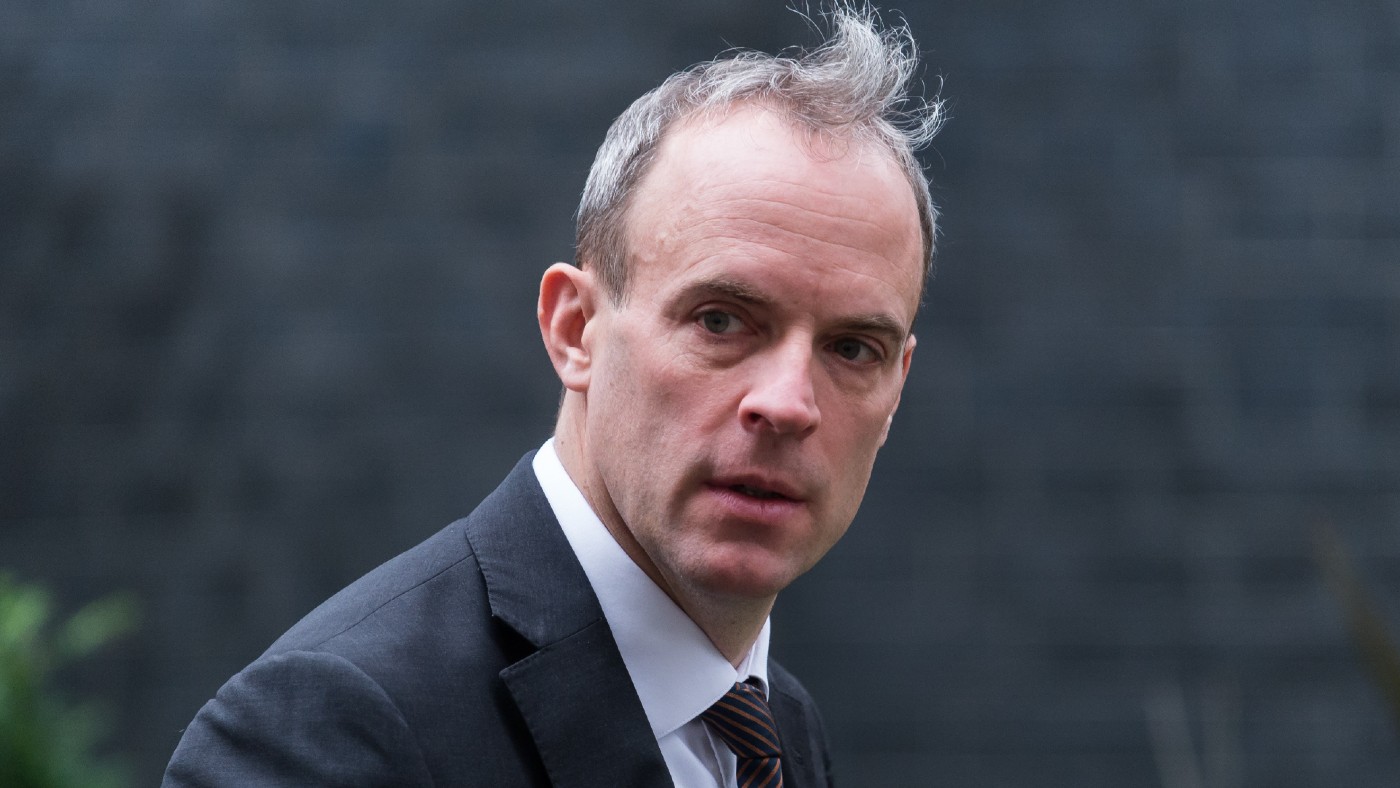Afghanistan withdrawal: did the Foreign Office fail in its response?
Testimony of former desk officer said prioritising of applicants was ‘arbitrary and dysfunctional’

A free daily email with the biggest news stories of the day – and the best features from TheWeek.com
You are now subscribed
Your newsletter sign-up was successful
The rapid withdrawal of Nato forces from Afghanistan in August is widely considered to have been a “disastrous decision, incompetently executed”, said The Times. But it took the testimony of a 25-year-old former desk officer, Raphael Marshall, to expose in “excruciating detail” just how badly the UK Foreign Office failed in its response.
Marshall told the Commons Foreign Affairs Committee last week that between 75,000 and 150,000 Afghans applied to be evacuated on the grounds of a connection to the UK. Yet less than 5% received help, and some of those left behind have since been murdered.
At times Marshall was the only member of his team working on the desk as desperate emails flooded in. Thousands went unprocessed and unanswered. The prioritising of applicants, he said, was “arbitrary and dysfunctional”. It was a “damning indictment”, said Ross Clark in the Daily Mail – perhaps the most damning “ever produced” about the modern civil service.
The Week
Escape your echo chamber. Get the facts behind the news, plus analysis from multiple perspectives.

Sign up for The Week's Free Newsletters
From our morning news briefing to a weekly Good News Newsletter, get the best of The Week delivered directly to your inbox.
From our morning news briefing to a weekly Good News Newsletter, get the best of The Week delivered directly to your inbox.
The bureaucratic mess “would be comic if it were not so plainly tragic”, said Andrew Hill in the FT. Many emails were flagged as “read” but then simply ignored. Communications were hampered by so many staff working from home, and the organisation’s dogged insistence on an eight-hour day for “work-life balance”. Nor was there any urgency at the top: the then foreign secretary, Dominic Raab, and the Foreign Office’s top civil servant, Philip Barton, both stayed on holiday as “the crisis deepened”.
I was in Kabul at the time, said Kim Sengupta in The Independent. British soldiers and officials, working non-stop, told applicants not to panic because the UK had “a system in place” to get them out. But now we see how “flawed” that system was.
The Government disputed Marshall’s account, but not convincingly, said Rafael Behr in The Guardian. It did not deny, for instance, that some night-shifts went unmanned. Raab emerges as an “indecisive control freak” who was painfully slow to make urgent decisions. Marshall testified that when Boris Johnson did intervene, it was to help evacuate animals rescued by a charity run by Paul “Pen” Farthing, rather than Afghans. (This was also denied, although Johnson’s then parliamentary aide did authorise the flight.)
There are, of course, long-standing flaws in the civil service, but it seems increasingly that the Johnson Government takes “administrative dysfunction to a new level”, whether over Covid-19 or Afghanistan. The “terrible price” of its complacency is “still being paid by Afghans who called to Britain for sanctuary and got no answer”.
A free daily email with the biggest news stories of the day – and the best features from TheWeek.com
-
 How the FCC’s ‘equal time’ rule works
How the FCC’s ‘equal time’ rule worksIn the Spotlight The law is at the heart of the Colbert-CBS conflict
-
 What is the endgame in the DHS shutdown?
What is the endgame in the DHS shutdown?Today’s Big Question Democrats want to rein in ICE’s immigration crackdown
-
 ‘Poor time management isn’t just an inconvenience’
‘Poor time management isn’t just an inconvenience’Instant Opinion Opinion, comment and editorials of the day
-
 How corrupt is the UK?
How corrupt is the UK?The Explainer Decline in standards ‘risks becoming a defining feature of our political culture’ as Britain falls to lowest ever score on global index
-
 Democrats push for ICE accountability
Democrats push for ICE accountabilityFeature U.S. citizens shot and violently detained by immigration agents testify at Capitol Hill hearing
-
 Fulton County: A dress rehearsal for election theft?
Fulton County: A dress rehearsal for election theft?Feature Director of National Intelligence Tulsi Gabbard is Trump's de facto ‘voter fraud’ czar
-
 ‘Melania’: A film about nothing
‘Melania’: A film about nothingFeature Not telling all
-
 Greenland: The lasting damage of Trump’s tantrum
Greenland: The lasting damage of Trump’s tantrumFeature His desire for Greenland has seemingly faded away
-
 Minneapolis: The power of a boy’s photo
Minneapolis: The power of a boy’s photoFeature An image of Liam Conejo Ramos being detained lit up social media
-
 The price of forgiveness
The price of forgivenessFeature Trump’s unprecedented use of pardons has turned clemency into a big business.
-
 Reforming the House of Lords
Reforming the House of LordsThe Explainer Keir Starmer’s government regards reform of the House of Lords as ‘long overdue and essential’